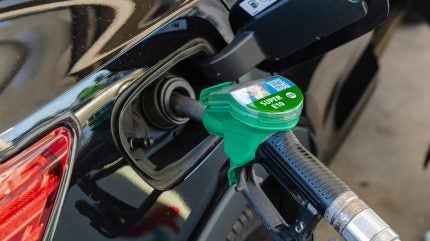
Campaign group T&E has urged the European Commission to reject pressure from car manufacturers to allow the continued use of biofuels in new cars after 2035.
The environmental campaign group argues that such fuels are scarce, largely imported and not genuinely carbon-neutral.

Discover B2B Marketing That Performs
Combine business intelligence and editorial excellence to reach engaged professionals across 36 leading media platforms.
Under existing European Union rules, all new cars registered from 2035 must produce zero carbon dioxide emissions. The move is aimed at accelerating the shift to battery-electric vehicles and winding down both fossil fuels and conventional internal combustion engines.
Automotive industry stakeholders have been lobbying Brussels to carve out an exemption that would permit internal combustion engines, plug-in hybrids and range extenders to operate on what they describe as carbon-neutral fuels beyond that cut-off date.
The Commission is expected to present a package of measures for the automotive sector on 10 December.
In a new report, T&E highlighted earlier changes to EU legislation in 2018 that curbed the use of crop-based biofuels derived from feedstocks such as palm oil and soy.
Those reforms prioritised waste-based inputs, including used cooking oil and animal fats, which now make up around half of bio-based diesel used in the bloc, according to T&E.
However, the group noted that roughly 60% of all biofuels and 80% of used cooking oil used in the EU comes from outside the region, predominantly from Asian markets.
T&E says this reliance on imports has been accompanied by a rise in fraudulent practices, including instances where palm oil has allegedly been relabelled as waste material.
According to the report, biofuels made from food crops generally deliver only about a 60% reduction in CO2 emissions compared with fossil fuels, once emissions linked to cultivation, processing and transport are taken into account.
Such fuels can also drive deforestation, T&E warned.
The analysis describes more advanced fuels produced from sources such as municipal waste and sewage sludge as more sustainable options, but stresses they are available only in limited volumes.
T&E said these fuels have already been effectively allocated to hard-to-decarbonise sectors such as aviation and maritime transport.
If road transport were also to rely on them, EU demand could reach between two and nine times the anticipated sustainable supply by 2050, the report estimates.
Allowing biofuels to power cars in the EU could in fact push up emissions, the group argues. Its modelling suggests that including biofuels in the light-duty vehicle mix could increase CO2 output by as much as 23% in 2050.
T&E concludes that biofuels “should not be part of the post-2035 solution” for road transport, and said that if they are permitted at all, their use should be capped at 5% of sales for vehicles that run on what it describes as genuinely carbon-neutral e-fuels.






